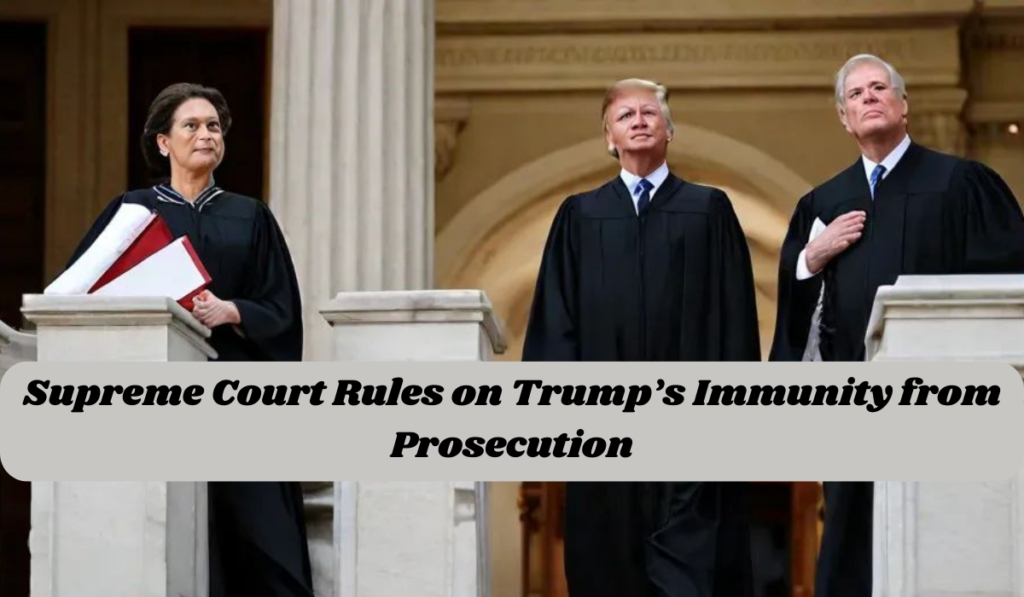In a significant ruling, the U.S. Supreme Court has decided that former presidents have some immunity from prosecution related to their official actions while in office. This decision impacts charges against former President Donald Trump and will be examined further in lower courts. Here’s a breakdown of the decision and its implications.
Key Points of the Ruling
- Immunity for Core Powers: Former presidents cannot be prosecuted for actions directly related to their core constitutional powers.
- Presumption of Immunity: There is a general presumption that former presidents have immunity for their official acts, but this can be challenged.
- Charges Against Trump: Charges related to Trump’s private conduct, rather than official acts, may still proceed.
Background of the Case
- Charges: Trump was indicted for allegedly conspiring to overturn the 2020 election results, following the investigation into the January 6, 2021, Capitol attacks.
- Immunity Argument: Trump argued he is immune from prosecution because he was the president at the time of the alleged actions.
Supreme Court’s Decision
- Official vs. Unofficial Acts: The lower courts must decide if Trump’s conduct was official or unofficial. This will determine if the charges can proceed.
- Impact on Trial: This decision could delay any trial, initially scheduled to start on March 4, 2024, but currently on hold.
Majority Opinion
- Chief Justice John Roberts: Presidents are not above the law but have immunity for their official acts related to core powers like issuing pardons or making appointments.
- Concern: Allowing prosecution for official acts could affect presidential decision-making and functioning.
Dissenting Opinions
- Justice Sonia Sotomayor: Warned that the ruling could allow future presidents to misuse power without accountability. She argued that criminal law should apply equally to everyone, including former presidents.
- Justice Ketanji Brown Jackson: Criticized the ruling for altering the balance of power among the government branches and weakening legal constraints on presidential abuse of power.
Implications for Trump’s Charges
- Justice Department’s Efforts: Trump’s alleged efforts to influence the Justice Department to replace legitimate electors with fraudulent ones are covered by the immunity.
- Vice President Pressure: Trump is immune from charges related to his attempts to pressure then-Vice President Mike Pence about electoral votes.
- Other Allegations: Charges related to Trump’s interactions with private individuals and state officials, as well as his statements before January 6, will be reviewed by lower courts to determine if they were official acts.
Separate Opinions and Concerns
- Justice Clarence Thomas: Questioned the legality of Special Counsel Jack Smith’s appointment and emphasized that no former president has been criminally prosecuted for official acts.
- Justice Amy Coney Barrett: Agreed on immunity for core powers but suggested a different approach for other official acts. She argued that some of Trump’s actions, such as requesting special sessions about election fraud, should not be immune.
Conclusion
The Supreme Court’s decision provides a nuanced view of presidential immunity, focusing on distinguishing official from unofficial acts. This ruling will guide lower courts in evaluating charges against Trump and future cases involving presidential actions.
References:
- Supreme Court Decision – Full Text of the Ruling
- CNN Report – CNN Coverage of the Decision
- NPR Analysis – NPR Analysis of the Ruling

